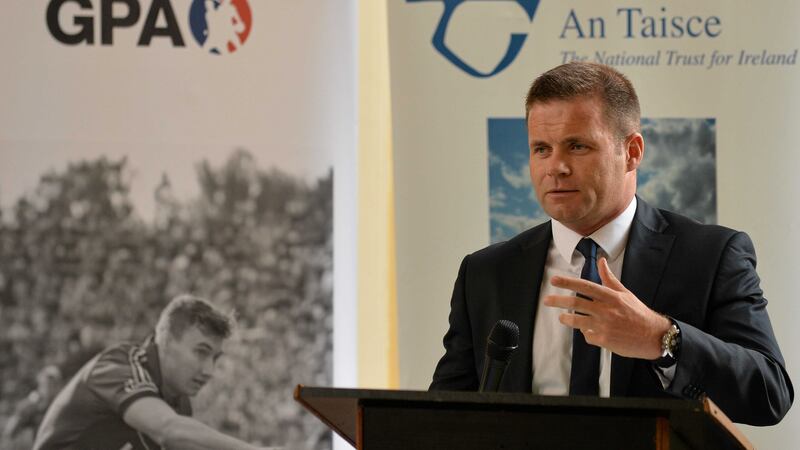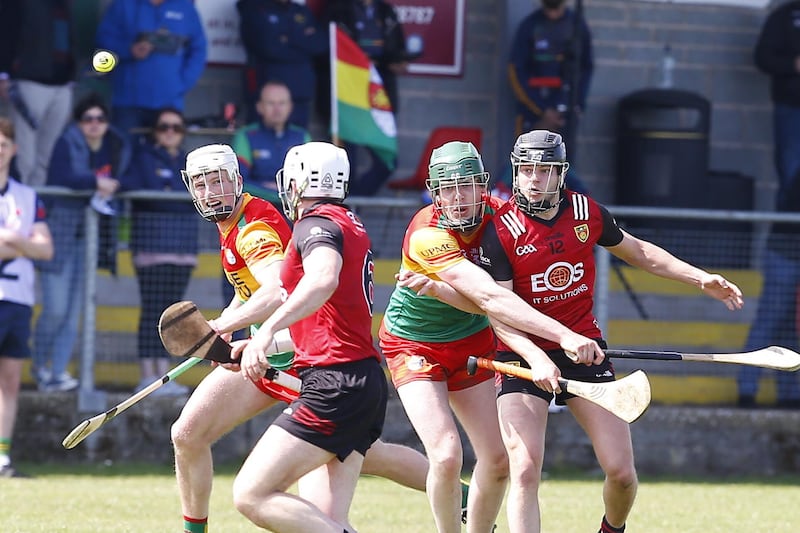GPA chief executive Dessie Farrell admits a number of “sacred cows” will have to confronted before the Gaelic Players’ Association Football Competitions’ proposal sees the light of day.
One of the most obvious is a complete overhaul of the provincial Championship system. For example, this year’s Ulster Senior Football Championship lasted eight weeks - it would have to be finished in five under the GPA timetable.
“No doubt it will be a difficult,” said Farrell.
“There are numerous sacred cows that will have to be tackled and challenged in relation to this and that is one of them. In many ways, you have to ask for common sense to prevail. Does it make sense to run a Championship over that period of time when you could possibly do it in a better way?
“It won’t impact on their [the Ulster Council’s] control of the competition outside of scheduling and can lead to an overall enhanced playing experience for both club and county players. Obviously, the revenue situation would be important to provincial councils and county boards and they’d be very positively impacted.”
Another potential sticking point is the provincial Championship scheduling. Under the GPA plan, the Anglo-Celt Cup race would begin in mid-April, with four finals over the same weekend in mid-May. That is a radical pruning of the season given that this year’s Ulster Championship ran from May 17 to July 19. Farrell admitted that selling that idea to provincial councils could be difficult.
“It’s the elephant in the room how the provincial councils are going to react or respond to any proposal submitted from anywhere,” he said.
“There will undoubtedly be challenges there, but I’d be appealing to peoples’ better judgement and common sense here. For us, this is a win-win for everybody, there’s no down side except if the provincial authorities feel that their control is being eroded slightly. It won’t impact on the funding and that’s always a big issue.
“They’re free to run there competitions however they see fit, but they have to be condensed into that period for the overall programme to work.”
This year, Dublin played seven Championship games (including a replay against Mayo) to win the Sam Maguire. Under the GPA system that could rise to 12 – up to four in Leinster and a possible eight in the All-Ireland series.
Farrell says players want to see more action – they prefer playing matches to spending week after week in training.
“The players are saying that the length of the season is ridiculous and we need to condense that,” he said.
“They don’t mind playing games because if they’re not playing games they’re going to be training and with more games there’s more rest and recovery built in to a team’s schedule.”
Dublin All-Ireland winner James McCarthy agreed: “You don’t get burned out playing more games,” said the Ballymun wing-back.
“It’s the gaps between games that burns you out. Mentally it burns you out because you play a game and then you have to wait five weeks for another game – that’s just crazy.
“If you’re playing every two weeks there’s plenty of time to rest and recover. You won’t be training as hard and it makes more sense. The two problems are the length of the season and the gaps between games.”
Farrell said that feedback from players had been “quite high” and explained that there was no appetite for the introduction of a ‘B’ competition for weaker counties.
“Originally we had an option that the teams eliminated after the round robin series would go into a separate competition for themselves and there were carrots and incentives but they didn’t want it,” he said.
“One county said they would like to know more but everyone else said ‘no’, they didn’t want it.”







